Cats rarely show pain and tend to suffer in silence. The joint disease osteoarthritis makes life difficult for your four-legged friend, as it restricts their mobility and often leads to chronic pain. More and more cat owners are saying that they treat symptoms with the help of CBD oil for cats. We have summarised for you whether this works and what is important.
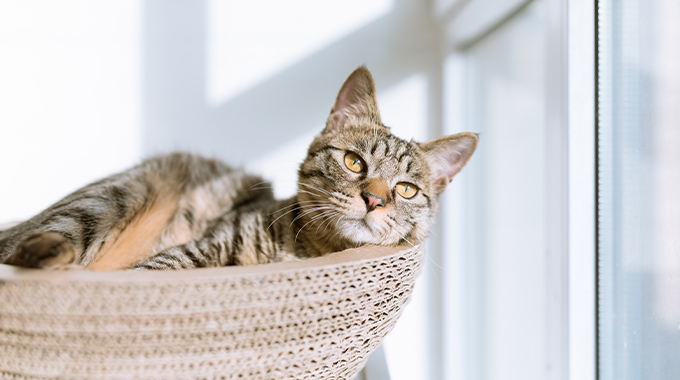
When cats suffer from osteoarthritis - these are the symptoms
Osteoarthritis is a disease that can affect dogs, humans and cats. Pets do not understand the causes of their symptoms and depend on you as a human to do something about it. The main symptoms include pain, reduced mobility and general stiffness. As a result of the symptoms, the quality of life of the animals often decreases significantly as they jump, walk and move with their joints.
Unlike other pets, cats tend to withdraw when they are in pain. Degeneration of the joints therefore often only becomes noticeable when your pet is no longer as mobile as it used to be. If your cat suddenly stops jumping on its elevated vantage point, avoids playing wildly with its toys or climbs less, you should consult your vet.
CBD oil for cats with osteoarthritis - why can it work?
Cannabinoids such as CBD have been on everyone’s lips for some years now. More and more people are using hemp oil as a natural painkiller or to treat various symptoms. Can the effect also be transferred to cats?
Cats, just like humans and dogs, have an endocannabinoid system in their bodies. It has been proven that the cannabinoid CBD docks onto this system and can thus interact with the human organism. The use and effect of CBD in dogs has been researched more than in cats. Studies have shown that dogs with osteoarthritis can benefit from its use. As the effect of CBD on cats could be similar, many owners expect a significant effect on pets affected by osteoarthritis.
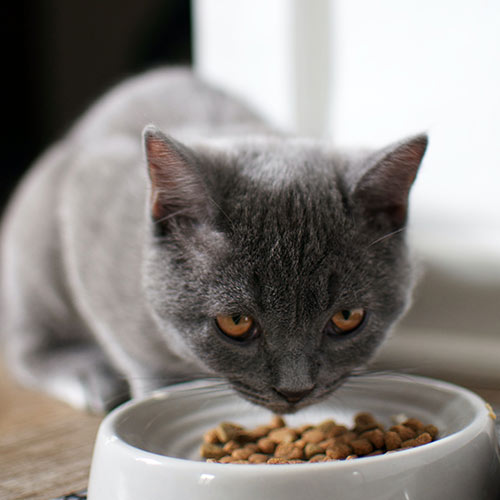
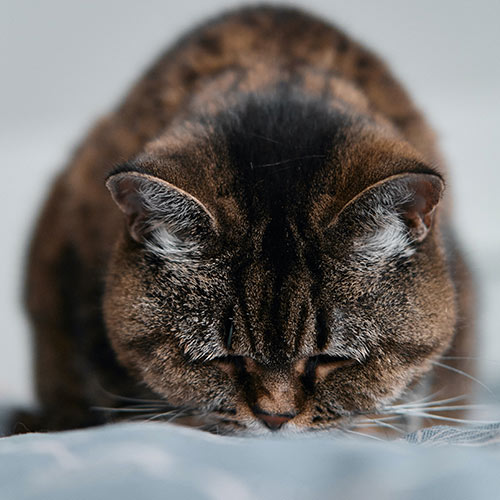
Not every CBD oil is suitable for cats - beware of terpenes
CBD is extracted from hemp flowers. The terpenes contained in a full-spectrum oil create an entourage effect. Cats cannot metabolise terpenes, so these animals require a different CBD composition. Here it is particularly important to focus on pure mono-products without a pronounced terpene profile. The quality must be high, as the experience of pet owners shows.
Triple effect for osteoarthritis - how cat owners describe an increase in well-being
Hemp and the CBD extracted from it is not a panacea and will not treat osteoarthritis in cats. It merely provides support and many cat lovers report an increase in activity when using it. This could be due to the threefold effect of CBD.
1. CBD for pain therapy - long known in humans
Humans have been using CBD for a long time to reduce pain in the body. As soon as the brain of a mammal with an endocannabinoid system perceives pain, it transmits corresponding signals. Extracts of the hemp plant, such as CBD, are said to be able to stop the transmission of pain and thus reduce the pain felt. Whether it is located in the joint or elsewhere plays a subordinate role.
2. CBD against inflammation of the cartilage - does it also help cats?
Anti-inflammatory properties have already been proven for CBD products in humans. The effectiveness can be explained by the inhibition of inflammatory messengers in the body. According to initial assumptions, the body’s CB1 and CB2 receptors produce more immune cells when cannabidiol is used, which can help to break down the inflammatory messengers. There have not yet been any studies on the effectiveness of cannabidiol in cats, but experience reports are drawing attention to it.
3. CBD for anxiety in cats with osteoarthritis
If your cat is in pain, it feels stressed and anxious. CBD is also said to offer help in this area, as it is said to have an anxiolytic and calming effect. By relaxing the cat physically and mentally, the inflamed cartilage may hurt less and the general condition improves.


The dose question - how much cannabidiol is suitable for cats?
As CBD is not an official dietary supplement, there are no general recommendations for the correct dose. Pet owners report that they start with small amounts (1 to 2 drops) and then work their way up to the maximum dosage. Factors such as body weight and your cat’s general health will play a role.
As a rule of thumb, a maximum dose of 1 mg CBD is sufficient for a cat with a body weight of 5 kilograms. Experience has shown that the best way to administer CBD is through the diet. Alternatively, you can also drip the CBD oil onto your cat’s back.
Side effects of CBD - can problems occur?
The tolerability of CBD products has been confirmed by the WHO. However, this statement primarily applied to humans and did not mention animals. The use in dogs has been much better researched and the good tolerability seems to be confirmed. In general, some pets react sensitively to new substances, even a new cat food can literally be hard on your four-legged friend’s stomach.
To prevent this and reduce side effects, only administer a very small amount of CBD at first. Talk to your vet, who can give you further tips on the optimal dosage. Remember that CBD only serves as support, but does not replace a previously used therapy! If you experience any undesirable side effects, discontinue the CBD and seek further information from your vet.


What you need to look out for when buying CBD oil for cats
We’ve already explained above why your cat shouldn’t just use any CBD product. To promote quality of life, it is important to choose a high-quality product that has been produced according to organic principles. Make sure that no terpenes are used and that the THC content is declared. Legal CBD products may contain a maximum of 0.2% THC and will not make your pet “high”.
Look at the company from which you purchase CBD. A reputable supplier will always provide you with a certificate confirming the purity and laboratory control of the product.
Combining CBD oil wisely - how you can support your cat with osteoarthritis
A cat with osteoarthritis should always be seen by a vet, as only a vet can treat the disease optimally. If you notice changes in your pet that indicate osteoarthritis, do not simply start CBD treatment. Have an examination carried out and administer the prescribed medication properly. In addition to CBD and drug therapy, there are other measures that promote the well-being of your pet. These include
Physiotherapy to optimize joint function.
Reducing excess weight to relieve the joints.
Comfortable sleeping places so that your tiger can rest.
Giving food supplements with omega-3 fatty acids.
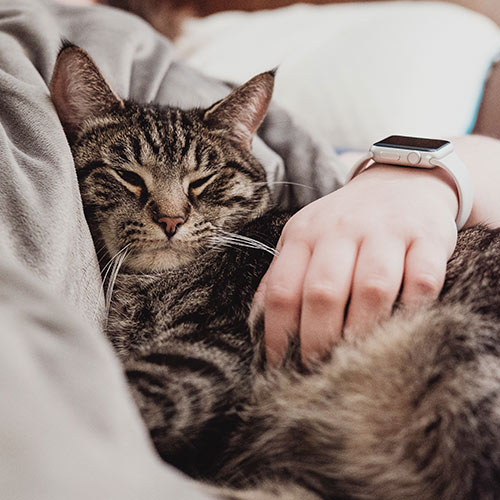
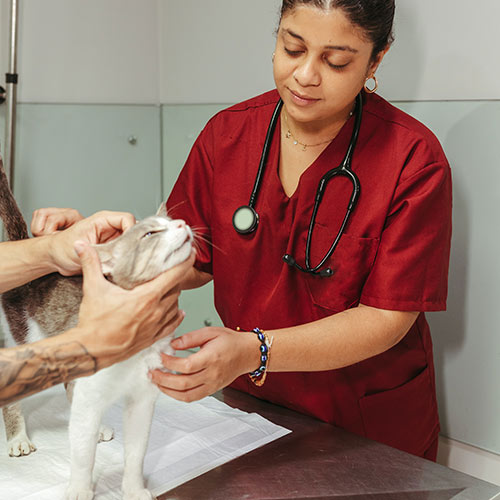
Conclusion: CBD oil appears to be a beacon of hope for cats with osteoarthritis
Although definitive studies are still pending, CBD oil appears to be a ray of hope for cat owners with osteoarthritis in their pets. The testimonials speak for themselves and there will certainly be more research results in the future. Many animal lovers are already using CBD for their pets, as it has few side effects and is considered to be well tolerated.


